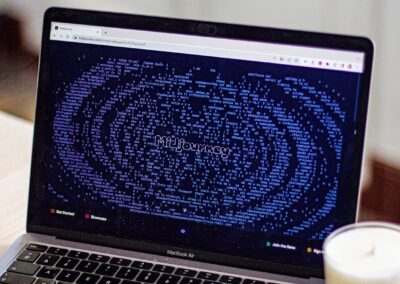How Leading Theories Might Shape Future Policy and Governance
Understanding the Technological Singularity
The societal impacts of the technological singularity are a topic of intense debate among futurists, scientists, and policymakers. The singularity refers to a hypothetical future point where artificial intelligence (AI) surpasses human intelligence, leading to rapid and profound changes in technology and society. This concept, while speculative, has the potential to revolutionize various aspects of life, necessitating significant shifts in policy and governance.
The singularity could bring about unprecedented technological advancements, ranging from highly autonomous systems to transformative changes in industries such as healthcare, finance, and transportation. For regions like Saudi Arabia and the UAE, which are at the forefront of adopting advanced technologies, the implications of the singularity could be substantial. These countries are already investing heavily in AI and related technologies, positioning themselves as leaders in innovation and digital transformation.
However, the advent of the singularity also raises critical ethical and societal questions. Issues such as job displacement, data privacy, and the ethical use of AI need to be addressed to ensure that the benefits of the singularity are equitably distributed and that potential risks are mitigated. As we approach this transformative period, it is crucial for policymakers, business leaders, and society at large to engage in thoughtful discourse and proactive planning.
Potential Societal Impacts and Challenges
The societal impacts of the technological singularity are multifaceted, encompassing both opportunities and challenges. One significant impact is the potential for widespread job displacement as AI systems become capable of performing tasks traditionally done by humans. While automation can lead to increased efficiency and productivity, it also poses the risk of significant unemployment and economic inequality. Addressing these challenges will require comprehensive strategies, including retraining programs and social safety nets to support displaced workers.
Another critical impact is the potential erosion of privacy and autonomy. As AI systems become more integrated into daily life, the amount of data collected and analyzed will increase exponentially. This raises concerns about data security, privacy, and the potential for surveillance. Policymakers must develop robust regulations to protect individual privacy and ensure that AI systems are used ethically and transparently.
Moreover, the singularity could exacerbate existing inequalities, particularly if access to advanced technologies is unevenly distributed. Ensuring that the benefits of AI and the singularity are accessible to all segments of society will be essential for promoting social equity. This includes investing in education and infrastructure to bridge the digital divide and ensure that everyone can participate in and benefit from technological advancements.
Shaping Future Policy and Governance
The societal impacts of the technological singularity will significantly influence future policy and governance decisions. Policymakers must anticipate and address the challenges posed by the singularity while fostering an environment that encourages innovation and technological advancement. This involves developing comprehensive AI strategies that prioritize ethical considerations, transparency, and inclusivity.
In Saudi Arabia and the UAE, proactive policy measures can play a crucial role in shaping the impact of the singularity. For instance, these countries can implement regulatory frameworks that promote responsible AI use, protect data privacy, and ensure equitable access to technology. By setting high standards for AI governance, they can position themselves as global leaders in ethical AI deployment and digital innovation.
Furthermore, international collaboration will be vital for addressing the global implications of the singularity. Countries must work together to establish common standards and guidelines for AI development and use. This includes fostering dialogue and cooperation through international organizations and forums to ensure that the benefits of the singularity are shared globally and that potential risks are collectively managed.
Leadership and Strategic Planning
Navigating the societal impacts of the technological singularity requires visionary leadership and strategic planning. Business executives, mid-level managers, and entrepreneurs must be proactive in understanding and addressing the implications of AI advancements. This involves staying informed about emerging technologies, fostering a culture of continuous learning and innovation, and developing strategies to leverage AI for business success.
Executive coaching services can provide valuable support to leaders as they navigate the complexities of the singularity. By offering guidance on strategic decision-making, change management, and ethical leadership, executive coaches can help leaders effectively integrate AI into their organizations and prepare for the transformative changes ahead.
In regions like Riyadh and Dubai, where leadership development is a key focus, investing in executive coaching and strategic planning can ensure that leaders are well-equipped to guide their organizations through the singularity. By fostering a forward-thinking approach and prioritizing ethical considerations, leaders can drive sustainable growth and innovation while addressing the societal impacts of the singularity.
Conclusion
In conclusion, the societal impacts of the technological singularity are profound and far-reaching, necessitating thoughtful consideration and proactive planning. As AI advances towards the singularity, the potential for both transformative benefits and significant challenges is evident. By anticipating these impacts and shaping future policy and governance accordingly, regions like Saudi Arabia and the UAE can harness the power of AI to drive innovation and societal progress. Through strategic leadership, ethical considerations, and international collaboration, we can ensure that the singularity leads to a more equitable, prosperous, and sustainable future for all.
—
#TechnologicalSingularity #SocietalImpacts #AIGovernance #FuturePolicy #AIandSociety #SaudiArabia #UAE #Riyadh #Dubai #BusinessTransformation #Leadership #GenerativeAI























